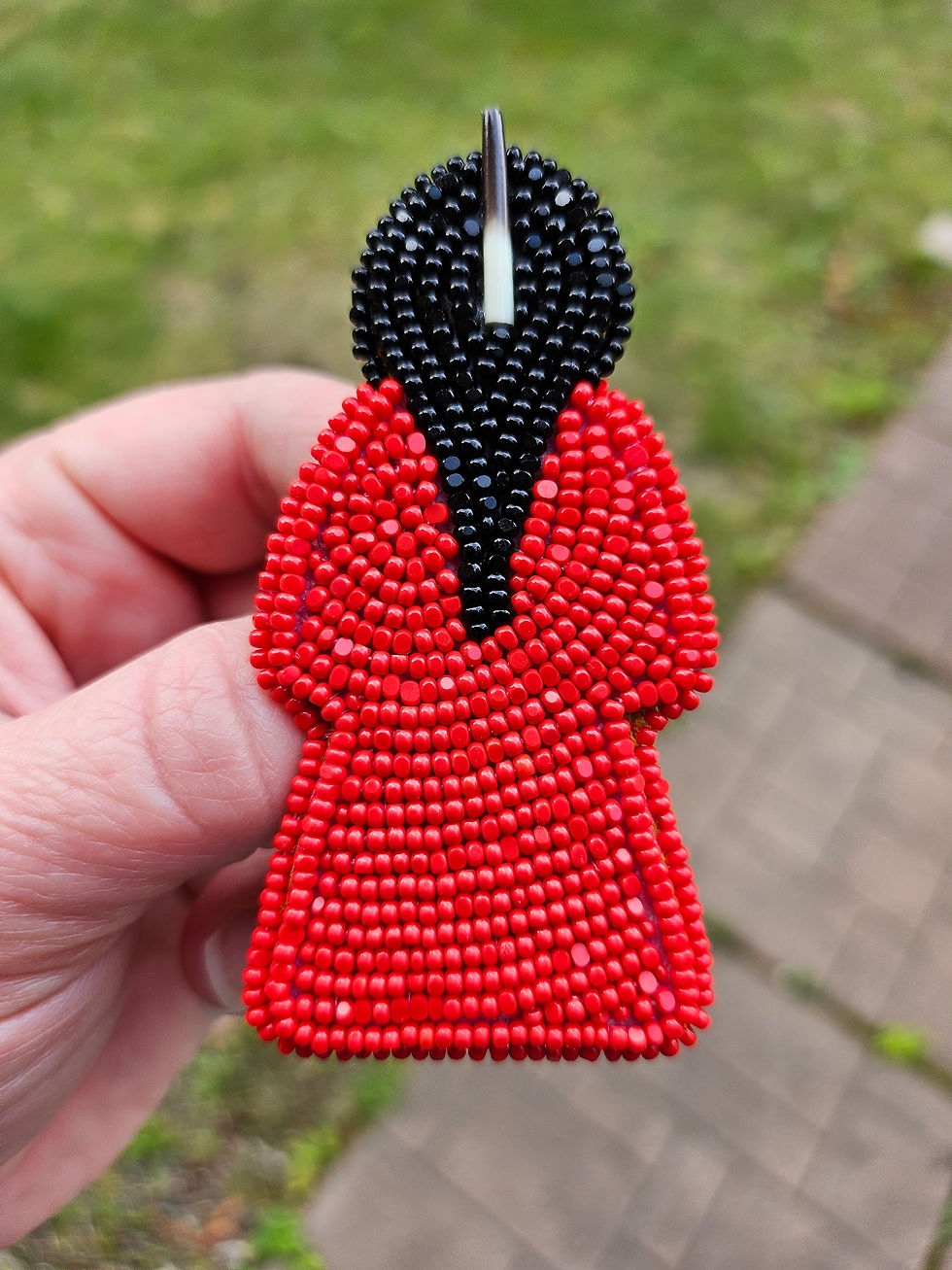
4 days ago2 min read

5 days ago4 min read

Feb 192 min read


Jan 243 min read
Recent Posts





Archive
Tags

Indigenous Social Work Field Coordinator | Sessional Instructor School of Indigenous Relations, Laurentian University
What is your background in social work and education (teaching), and what is your current role/profession?
Boozhoo! E’minowaangozid kwe ndigo. Ogimaa doodem. Wabigonii Zaaga’igan n’doonjibaa minwaa N’Swakamok. My Anishinaabe name loosely translates to "Kind-Hearted Woman." I am a proud member of Wabigoon Lake Ojibway Nation, and I was born and raised in Sudbury, Ontario (N'Swakamok).
I serve as a Field Coordinator for the Indigenous Social Work program for the School of Indigenous Relations at Laurentian University, a sessional instructor, and a Master of Indigenous Relations student. My thesis focuses on decolonizing and indigenizing reflective tools in field education using an Anishinaabe lens.
Beyond my academic and professional work, I have been beading for over a decade. Beadwork connects me to the land, my teachings, and my ancestors while fostering connections with the urban Indigenous community in N’Swakamok. It is not merely artistic work; it is a profound way to tell stories, record traditions, and pass down teachings that would otherwise remain oral.

What brought you to the work you are currently doing? (Why did you choose this profession?)
I chose social work to give back to my people and strengthen my connection to the Indigenous community, especially while living away from my home territory. My journey began during a college practicum at the N'Swakamok Indigenous Friendship Centre, where my mentor, Christina Agawa, encouraged me to pursue Native Human Services (now Indigenous Social Work) at Laurentian University.
Though my academic path was challenging, the support I received from faculty, staff, and the Indigenous community at Laurentian changed my life. It inspired me to mentor and advocate for others who face barriers to education and success.
My experience with beadwork has also influenced my journey. Each piece I create tells a story and carries teachings. For example, I recently created a beaded medallion for Laurentian University's President, Lynn Wells. The medallion incorporated the university’s logo alongside Anishinaabe teachings. The four circles surrounding the white pine represented the four directions and the cyclical nature of knowledge and life. The placement of colours and designs symbolized students’ journeys through academic seasons—from new beginnings to harvest and eventual wisdom. Beadwork allows me to embed meaning into my work and pass those teachings to others.

How does your current work serve to empower women and girls?
My work supports women and girls by advocating for equitable opportunities in social work education. Social work, as a feminized profession, often undervalues the labour and care traditionally performed by women. I challenge these norms by supporting paid placements, advocating for flexible practicums, and promoting culturally grounded education that values the contributions of women.
Beadwork also plays a significant role in this empowerment. In 2019, I began creating beaded red dresses to honour Missing and Murdered Indigenous Women, Girls, and Two-Spirit People (MMIWG2S). These small, intricate dresses serve as visual representations of loss, resilience, and the urgent need for systemic change. I donate proceeds from these pieces to organizations supporting MMIWG2S, turning art into advocacy. Through beadwork, I raise awareness of these critical issues while offering healing and connection to those affected.
Visual representation, like the red dresses, is a powerful tool for storytelling and awareness. These beaded creations bring visibility to the realities of colonial violence and honour the lives of those we have lost. For me, each stitch is an act of resistance, love, and remembrance.
By incorporating beadwork into my practice, I bridge the personal, cultural, and professional aspects of my life. Whether teaching students, supporting women in social work, or raising awareness about MMIWG2S, my work is grounded in mino-bimaadiziwin—living a good life that honours all our relations.
Interviewed by Christina Parke Registered Practical Nurse Indigenous Social Work Student, Laurentian University

Comments